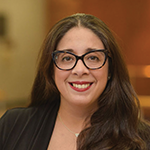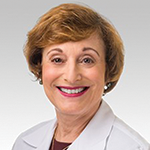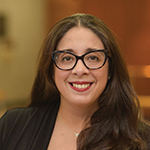
melitas / shutterstock.com
Diversity, equity and inclusion (DEI) are the focus of a new ACR/ARP subcommittee of the Collaborative Initiatives (COIN) Special Committee. The 13-member group will explore strategies to increase diversity in the rheumatology workforce pipeline and reduce implicit bias in such organizational processes as speaker recruitment and abstract review.
“There is a new awareness at the ACR of how much we need to work on these issues, both collectively as rheumatologists and in all of medicine,” says subcommittee co-chair Irene Blanco, MD, MS, professor of medicine and associate dean of the Office of Diversity Enhancement, Albert Einstein College of Medicine, the Bronx, N.Y. “This effort is a long game and will take persistence. There’s been a positive response from the ACR membership. People are excited about our next steps.”
Survey Highlights Urgency
In summer 2020, in the aftermath of George Floyd’s murder in Minneapolis and widespread protests for racial justice, the ACR formed a DEI task force to survey its membership and develop recommendations for the College. At its February 2021 meeting, the Board of Directors adopted the DEI task force’s recommendations, including the recommendation to turn the group into a subcommittee.
“Instead of dissolving the task force after it made recommendations, the ACR leadership said, ‘No, these are systemic problems with deep roots.’ I applaud the ACR’s leaders for making this a subcommittee,” says co-chair Ashira Blazer, MD, MSCI, assistant professor, Division of Rheumatology, New York University School of Medicine. “When we had our first meetings, we found there were so many areas where we could have an impact. We want to make sure we build a community of people from diverse, underrepresented backgrounds within the ACR and express the commitment of the College that DEI needs are being met.”
‘This effort is a long game & will take persistence.’ —Dr. Blanco
Addressing healthcare disparities has been a priority of the ACR for years. The COIN department was formed in 2014, with the COIN Special Committee in 2019 to educate providers on gender, race and ethnic health disparities among patients, initially focusing on people with lupus, says Rosalind Ramsey-Goldman, MD, Solovy/Arthritis Research Society Research Professor, Northwestern University Feinberg School of Medicine, Evanston, Ill., and COIN Special Committee chair. Now, there is an emerging awareness of, and accelerated focus on, diversity issues as well.

Dr. Blanco
The ACR is working with a professional DEI consultant to conduct a needs assessment based on communication with other ACR committees and the wider membership. With the results, the consultant and the subcommittee will develop actionable goals and benchmarks to present to the Board of Directors for consideration, says Dr. Ramsey-Goldman. The ACR has also approved a new, full-time DEI staff position pending the results of the assessment.
Although final DEI initiatives and budgets will be based on the consultant’s recommendations and the Board’s approval, items on the table for discussion include:
- Incorporating DEI objectives into the new ACR strategic plan that will launch in 2023;
- Incorporating DEI objectives into Rheumatology Research Foundation efforts, such as grant and award reviews;
- Developing DEI education programs for ACR Convergence; and
- Developing career networking resources and opportunities for ACR/ARP members who belong to underrepresented minority groups.
Diverse Recruitment
“The Board of Directors determined that we need a more diverse rheumatology workforce,” says Dr. Ramsey-Goldman. “We need diverse providers, and we need to care for diverse patients in underserved regions of the country.”
Recruitment of trainees to work in rheumatology and pediatric rheumatology, specifically, is a high priority for the ACR, Dr. Blazer says. “Rheumatology is one of the least diverse fields in medicine, and part of the reason is our pipeline. Rheumatology is under-recognized among medical students, and people tend to gravitate toward professions where there are people who look like them.” There are no rheumatology fellowship programs at historically Black university medical schools in the U.S., she adds. “How do you expose these trainees to rheumatology when there are no rheumatologists on the faculty?”

Dr. Blazer
The ACR/ARP rheumatology workforce study published in 2015 highlighted gender shifts among practicing rheumatologists, with more female adult and pediatric rheumatologists than male. The study also highlighted a lack of racial and ethnic diversity among adult rheumatology providers, estimating that 75% are white, 15% Asian, 8.5% Hispanic and 0.08% African American.1
Diversifying the workforce will require long-term planning, says Dr. Blanco. “There’s a paucity of rheumatologists in general, and the situation will become dire in the next 20 years. The rheumatologists we recruit now don’t tend to be diverse. How do we make our workforce more representative of our diverse patient population?”
One option is more outreach to medical students and residents from underrepresented communities to encourage them to choose careers in rheumatology. This requires a commitment to support underrepresented minority trainees and investigators once they become rheumatologists, she notes. “We can do this through mentorship programs and funding investigators and their projects. Projects about health disparities don’t tend to get funded as much as basic and translational research, nor do underrepresented investigators get funding at the rates of other, more represented groups,” says Dr. Blanco.
Broad Efforts

Dr. Ramsey-Goldman
DEI issues affect every aspect of rheumatology, so the efforts to create positive change must extend beyond recruitment as well, says Dr. Ramsey-Goldman. The College posted a list of diversity and inclusion resources for members on its website, and ACR Convergence 2020 included a DEI town hall with an expert in unconscious bias and diversity in medical education.
“We want to improve student and trainee attendance at ACR Convergence, because we’ve seen that 26% of trainees who attend the meeting go on to a career in rheumatology,” she says.
Dr. Blanco is optimistic the ACR can build momentum through its actions. For example, supporting program directors to train fellows to have more sensitive, inclusive conversations with patients from diverse populations may foster mutual understanding, promote adherence to treatment recommendations and help improve outcomes, she says.
“How do we bring greater awareness and discussion of these issues to our membership, so we can also take better care of our patients? That’s what patient-centered care is all about: the needs of our patients. As an educator at a medical school, I think about this more and more. How can doctors contribute to a system where we have better outcomes for all of our patients?”
Susan Bernstein is a freelance journalist based in Atlanta.
Editor’s note: Learn more by visiting the DEI hub during ACR Convergence 2021.
DEI Task Force Recommendations
Governance
- Subcommittee: To provide permanency and continuity to the DEI efforts, the task force recommends that a DEI subcommittee be formed under the auspices of the COIN Special Committee.
- Strategic Plan: Specific, clear, measurable DEI objectives should be incorporated into the upcoming strategic plan. In addition, we recommend including verbiage on our DEI focus in the ACR mission statement.
Operations
- Engage a consultant to conduct a deeper assessment and create a structured, SMART plan for execution of the task force’s broader recommendations.
- Establish a permanent staff position to ensure ongoing operational attention to DEI throughout the ACR.
The Foundation
- The work of the Foundation is an integral part of the College as a whole. As such, the ACR should strongly recommend to the Foundation that it also make DEI a priority. The task force leadership will communicate specific recommendations related to the Foundation directly.
Immediate Action
- Develop and disseminate education that can be implemented for select audiences playing a role in development of ACR Convergence 2021.
- Develop and implement a networking strategy for underrepresented minority members.
DEI Subcommittee Members
Co-Chairs
Irene Blanco, MD, MS
Ashira Blazer, MD, MSCI
Members
Alisha Akinsete, MD
Micaela F. Bayard, MD
Hazel L. Breland, PhD, FAOTA
Sharon Dowell, MD
Titilola Falasinu, PhD
Candace H. Feldman, MD, MPH, ScD
Elizabeth D. Ferucci, MD
Mileka Gilbert, MD, PhD
Edward B. Herzig, MD
Thaila Ramanujam, MD
Jillian Rose, LCSW, MPH
Reference
- American College of Rheumatology. 2015 Workforce Study of Rheumatology Specialists in the United States.


